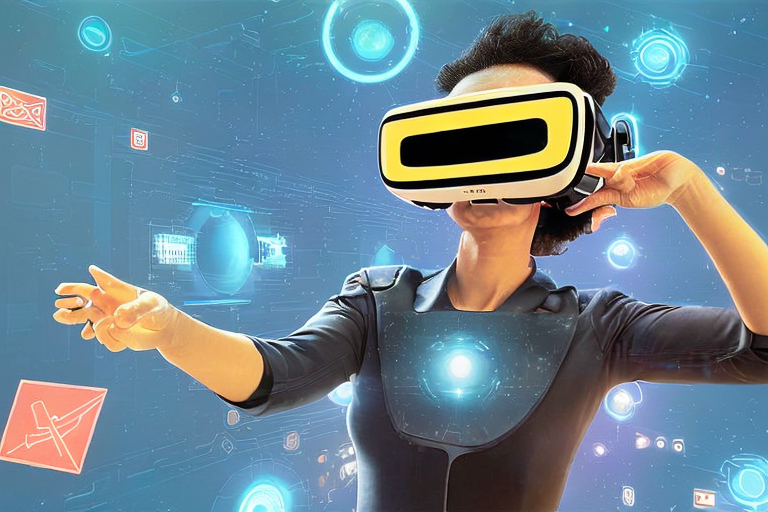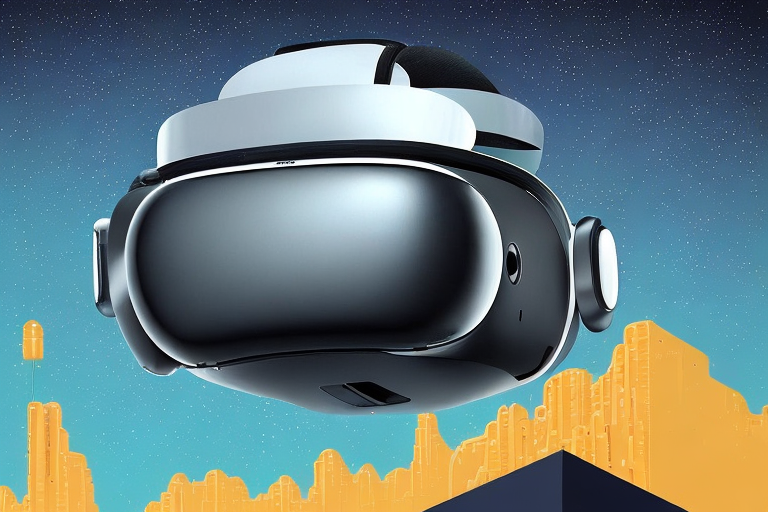공공부문에서 가상 현실(VR) 사용서비스 배달 및 시민 약혼(The Use of Virtual Reality in the Pu…
본문

가상 현실(VR) 기술은 공공 부문에서 중요한 역할을 하기 시작하여 서비스 제공을 개선하고 시민 참여를 개선하기 위한 새롭고 혁신적인 방법을 제공하고 있습니다. 공공 부문 조직은 VR 기술을 사용하여 시민들에게 서비스와 상호 작용할 수 있는 새롭고 매력적인 방법을 제공하여 전반적인 서비스 경험을 개선하고 시민 만족도를 높일 수 있습니다.
한국에서는 공공 부문이 VR 기술을 빠르게 채택하여 많은 조직이 서비스 제공 프로세스에서 VR을 실험하고 있습니다. 예를 들어, 서울시는 시민들에게 도시와 그 시설에 대한 가상 관광을 제공하면서 시민 참여 계획에 VR 기술을 구현했습니다. 이러한 유형의 VR 경험은 시민들이 도시와 서비스를 더 잘 이해하도록 도울 뿐만 아니라 도시와 상호 작용할 수 있는 새롭고 매력적인 방법을 제공합니다.
공공 부문에서 VR이 사용되고 있는 또 다른 방법은 가상 현실 훈련과 시뮬레이션을 통해 공공 부문 직원들이 기술과 지식을 향상시키는 데 도움이 될 수 있습니다. 예를 들어, VR은 공공 부문 직원들을 고객 서비스 교육에 사용할 수 있으며, 이를 통해 그들이 시민들에게 서비스를 제공하기 전에 시뮬레이션된 환경에서 기술을 연습할 수 있습니다. 이러한 유형의 VR 경험은 공공 부문 직원들이 복잡하고 어려운 상황에 더 잘 대처할 준비가 되어 있기 때문에 서비스 제공의 품질을 향상시키는 데 도움이 될 수 있습니다.

VR은 공공부문에서도 가상현실 공개회의와 이벤트를 만들어 시민들이 가상 환경에서 공개회의와 이벤트에 참여할 수 있도록 하는 데 활용되고 있습니다. 이러한 유형의 VR 경험은 자신의 집에서 편안하게 가상 환경에 참여할 수 있기 때문에 공개 회의와 행사에 직접 참석하기 어려운 시민들에게 특히 유익할 수 있습니다.
결론적으로, VR 기술은 공공 부문에 상당한 영향을 미치고 있으며, 서비스 제공을 개선하고 시민 참여를 개선할 수 있는 새롭고 혁신적인 방법을 제공합니다. 가상현실 투어 및 교육 시뮬레이션에서 가상현실 공개 회의 및 이벤트에 이르기까지 VR은 공공 부문 조직에 시민을 위한 몰입형 및 대화형 경험을 창출할 수 있는 기회를 제공하여 참여, 만족 및 참여 증가로 이어지고 있습니다. VR 기술이 계속 발전하고 개선됨에 따라, 서비스 제공 및 시민 참여를 향상시킬 새롭고 흥미로운 기회를 제공하면서, VR 기술은 공공 부문에서 점점 더 중요한 도구가 될 것입니다.

그러나 공공 부문에서 VR 기술을 사용하는 것은 도전 과제가 없는 것은 아니다. 가장 큰 과제 중 하나는 VR 경험을 제작하고 구현하는 비용이며, 이는 비용과 시간이 많이 소요될 수 있습니다. 또한 공공 부문에서 VR 기술을 사용할 때 시민 데이터의 개인 정보 보호 및 보안에 대한 우려도 있습니다. VR 기술이 효과적이고 안전하게 사용되도록 하려면 공공 부문 조직은 강력한 데이터 보호 조치를 구현하고 적절한 리소스와 인프라를 확보해야 합니다.
또 다른 과제는 VR 기술이 접근 가능하고 포괄적이어서 능력에 상관없이 모든 시민이 VR 체험에 참여할 수 있도록 하는 것입니다. 공공 부문 조직은 장애인을 포함한 모든 시민의 요구를 고려하고 모든 사람이 VR 경험에 액세스할 수 있도록 해야 합니다.

이러한 과제에도 불구하고 공공 부문에서 VR 기술의 이점은 분명합니다. VR은 시민들에게 공공 서비스와 상호 작용할 수 있는 새롭고 매력적인 방법을 제공함으로써 전반적인 서비스 경험을 개선하고 시민 만족도를 높이는 데 도움이 되고 있습니다. 또한 VR은 직원들에게 가상 교육 시뮬레이션을 제공하고, 기술과 지식을 향상시키며, 더 나은 서비스 품질을 제공할 수 있도록 함으로써 공공 부문 조직이 시간과 자원을 절약하는 데에도 도움이 되고 있습니다.
결론적으로, VR 기술은 공공 부문에 긍정적인 영향을 미치고 있으며, 서비스 제공을 개선하고 시민 참여를 개선할 수 있는 새롭고 혁신적인 방법을 제공합니다. 그러나 공공 부문 조직은 비용 및 데이터 개인 정보 보호와 같은 VR 기술 사용과 관련된 과제를 인식하고 VR 기술이 효과적이고 안전하게 사용되도록 조치를 취할 필요가 있습니다. 이를 통해 VR 기술은 전반적인 서비스 경험을 개선하고 시민 만족도를 높여 보다 적극적이고 참여적인 공공 부문으로 이어질 수 있습니다.
Virtual Reality (VR) technology is starting to play an important role in the public sector, offering new and innovative ways to enhance service delivery and improve citizen engagement. By using VR technology, public sector organizations can provide citizens with new and engaging ways to interact with their services, helping to improve the overall service experience and increase citizen satisfaction.
In South Korea, the public sector has been quick to adopt VR technology, with many organizations experimenting with VR in their service delivery processes. For example, the Seoul Metropolitan Government has implemented VR technology in its citizen engagement initiatives, providing citizens with virtual tours of the city and its facilities. This type of VR experience helps citizens to better understand the city and its services, as well as providing them with a new and engaging way to interact with the city.
Another way that VR is being used in the public sector is through virtual reality training and simulation, which can help public sector employees to improve their skills and knowledge. For example, VR can be used to train public sector employees in customer service, allowing them to practice their skills in a simulated environment before providing services to citizens. This type of VR experience can help to improve the quality of service delivery, as public sector employees are better prepared to deal with complex and challenging situations.
VR is also being used in the public sector to create virtual reality public meetings and events, allowing citizens to participate in public meetings and events in a virtual environment. This type of VR experience can be particularly beneficial for citizens who are unable to attend public meetings and events in person, as they can participate in a virtual environment from the comfort of their own homes.
In conclusion, VR technology is having a significant impact on the public sector, offering new and innovative ways to enhance service delivery and improve citizen engagement. From virtual reality tours and training simulations to virtual reality public meetings and events, VR is providing public sector organizations with the opportunity to create immersive and interactive experiences for citizens, leading to increased engagement, satisfaction, and participation. As VR technology continues to evolve and improve, it is likely to become an increasingly important tool in the public sector, offering new and exciting opportunities to enhance service delivery and citizen engagement.
However, the use of VR technology in the public sector is not without its challenges. One of the biggest challenges is the cost of producing and implementing VR experiences, which can be expensive and time-consuming. Additionally, there are also concerns around the privacy and security of citizens' data when using VR technology in the public sector. To ensure that VR technology is used effectively and safely, public sector organizations need to implement robust data protection measures and ensure that they have the right resources and infrastructure in place.
Another challenge is ensuring that VR technology is accessible and inclusive, so that all citizens can participate in VR experiences, regardless of their ability. Public sector organizations need to take into account the needs of all citizens, including those with disabilities, and ensure that their VR experiences are accessible to everyone.
Despite these challenges, the benefits of VR technology in the public sector are clear. By providing citizens with new and engaging ways to interact with public services, VR is helping to improve the overall service experience and increase citizen satisfaction. Additionally, VR is also helping public sector organizations to save time and resources by providing employees with virtual training simulations, improving their skills and knowledge, and enabling them to provide a better quality of service.
In conclusion, VR technology is having a positive impact on the public sector, offering new and innovative ways to enhance service delivery and improve citizen engagement. However, public sector organizations need to be aware of the challenges associated with the use of VR technology, such as cost and data privacy, and take steps to ensure that VR technology is used effectively and safely. By doing so, VR technology can help to improve the overall service experience and increase citizen satisfaction, leading to a more engaged and participatory public sector.






















댓글목록 0